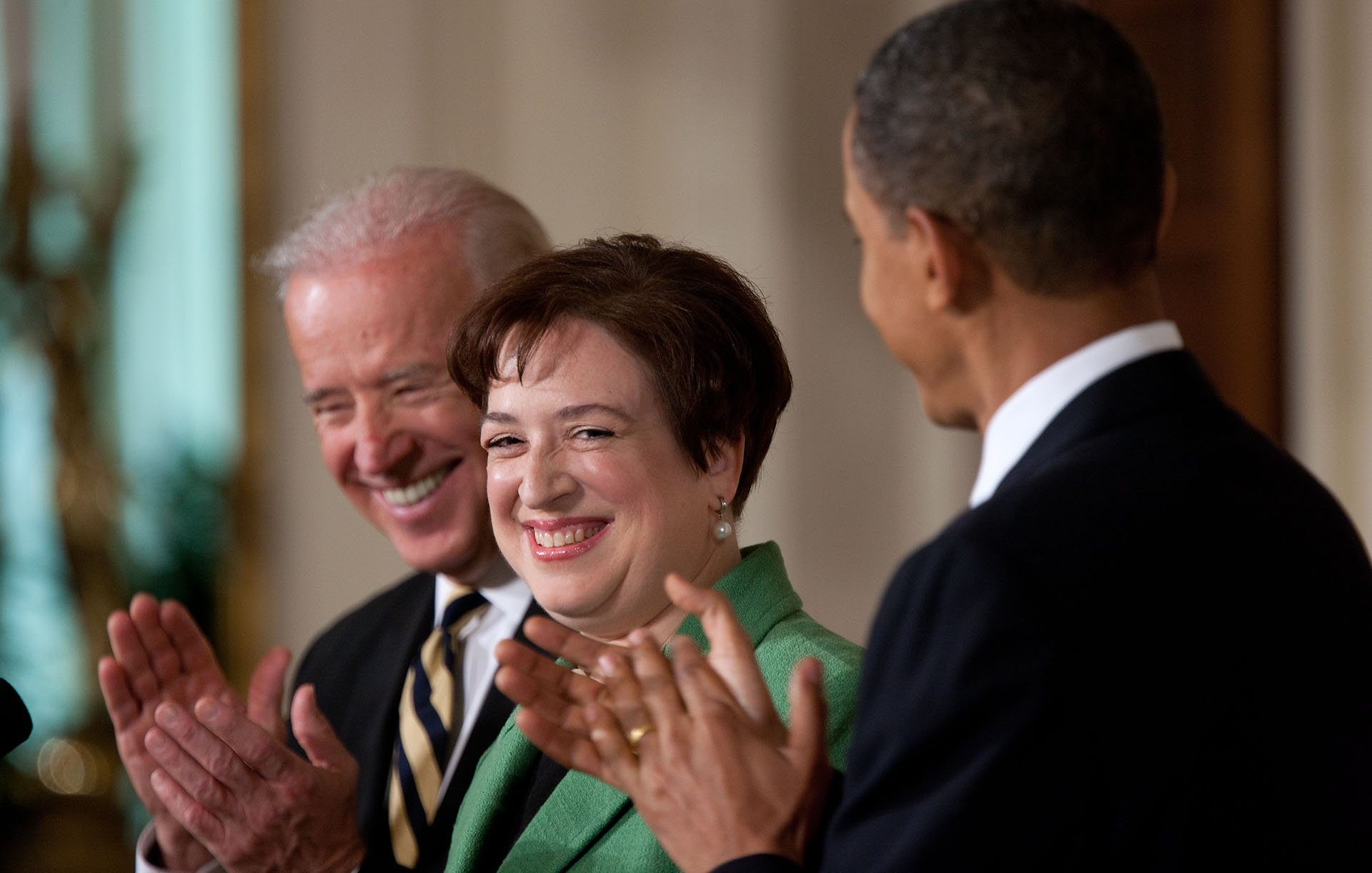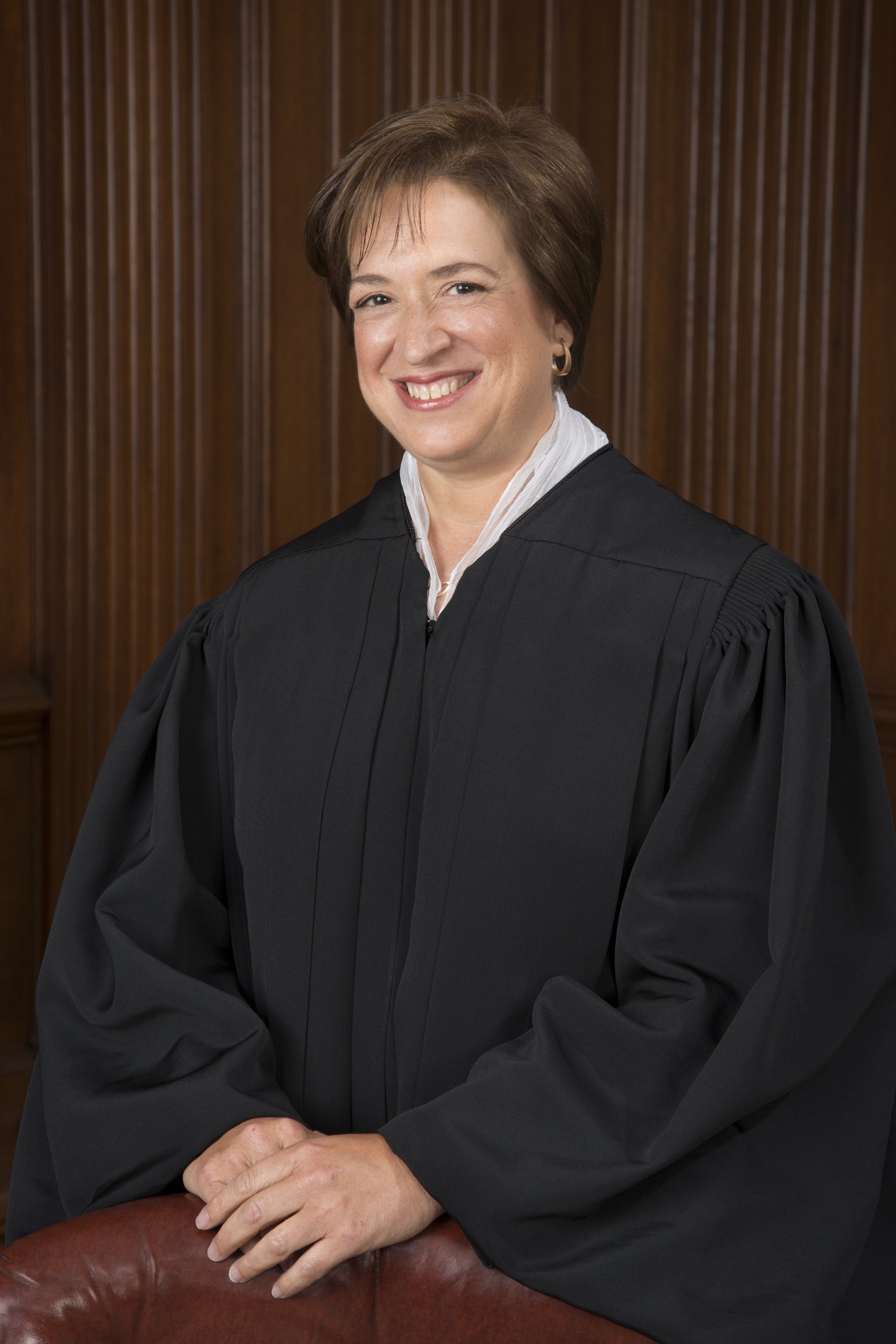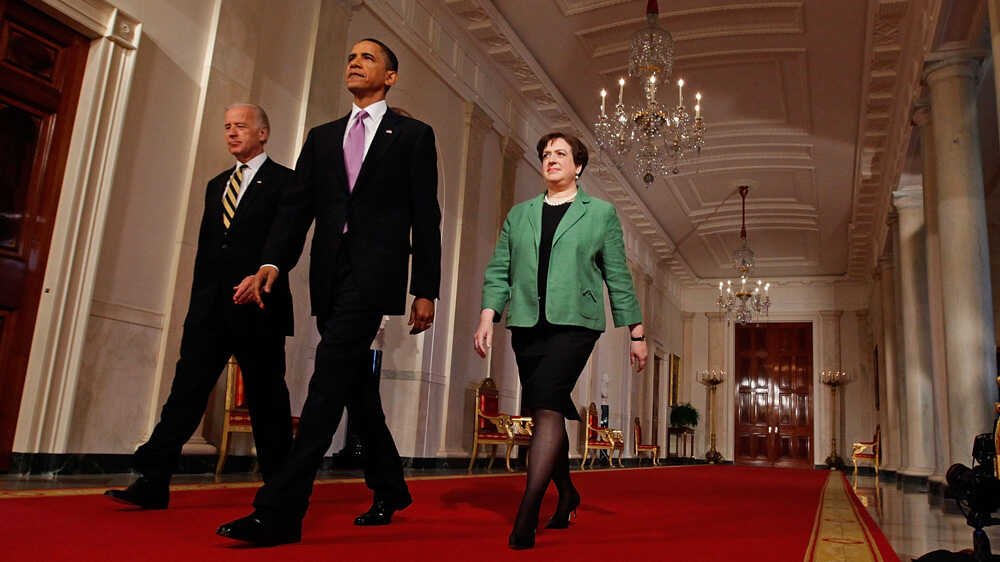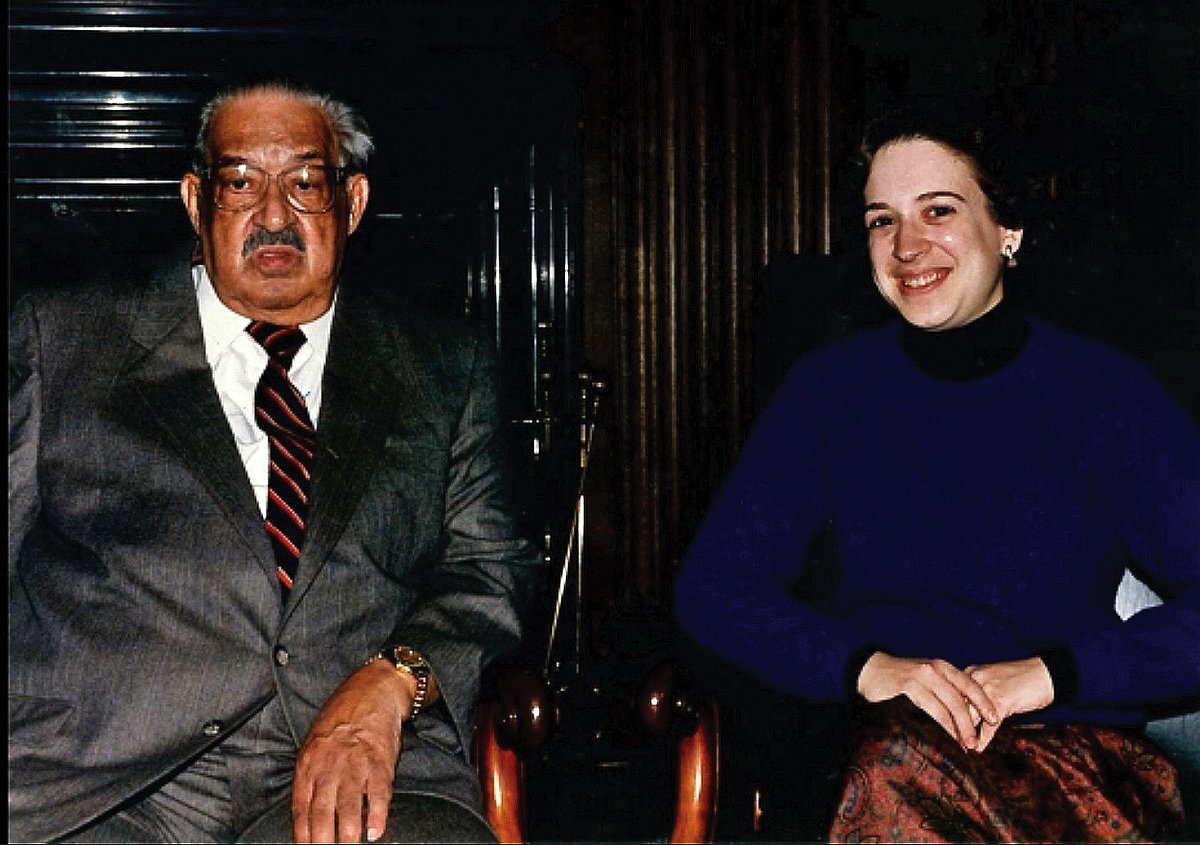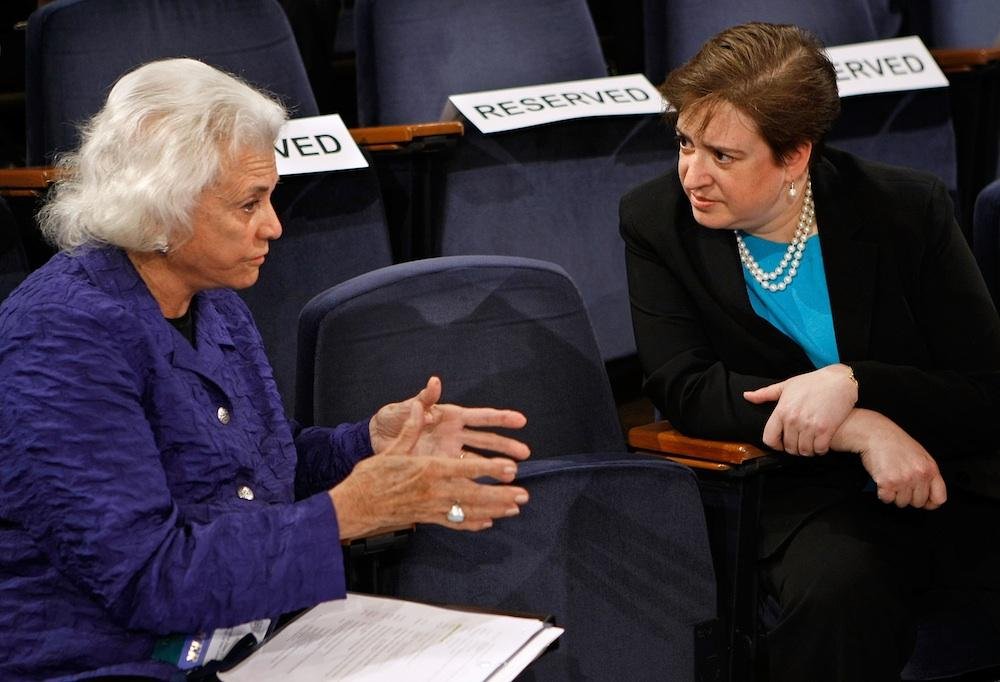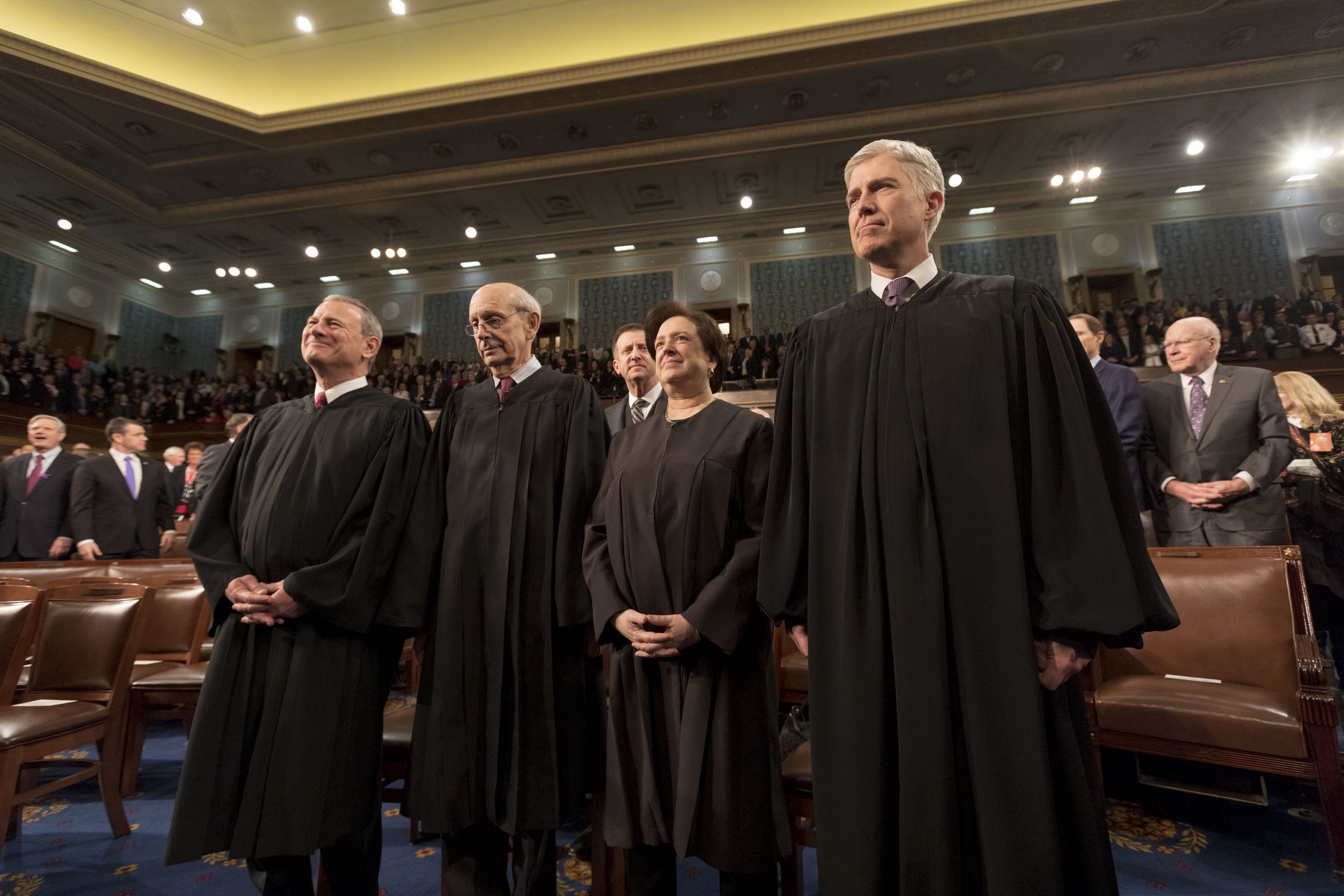ELENA KAGAN
Associate Justice
2010 — Present
Personal Life and Education
Elena Kagan was born on April 28, 1960 in Manhattan, New York. Kagan’s father worked as an attorney representing tenants trying to remain in their homes, and her mother was a teacher. Both her parents were the children of Russian Jewish immigrants and she grew up in the Jewish faith.
Kagan attended Hunter College High School in New York City, known for its rigorous academic environment. After high school, she pursued her undergraduate studies at Princeton University, where she served as editorial chair for The Daily Princetonian and graduated summa cum laude with a Bachelor of Arts degree in history. In 1980, Kagan was awarded Princeton’s Daniel M. Sachs Class of 1960 Graduating Scholarship, which is one of the university’s highest honors. This scholarship enabled her to study at Worcester College in Oxford, where she graduated from in 1983 with a Master of Philosophy in politics.
After graduating from Oxford, Kagan attended Harvard Law School, where she served as supervisory editor of the Harvard Law Review. Her academic prowess was recognized with numerous honors, including a fellowship at the Radcliffe Institute for Advanced Study and the prestigious Sheldon Fellowship, awarded to one outstanding Harvard graduate. While at Harvard, she worked as a summer associate in the litigation department of a Wall Street law firm. In 1986, Kagan graduated from Harvard with a Juris Doctor, magna cum laude.
Biden, Obama and Kagan walk to the East Room before Obama announced Kagan as his Supreme Court nominee. | Credit: Chip Somodevilla/Getty Images
Career
After graduating from Harvard Law School, Kagan served as a law clerk for Judge Mikva of the U.S. Court of Appeals for the District of Columbia Circuit for a year until 1988. In 1988, Justice Marshall of the Supreme Court hired Kagan as a law clerk to help him put the “spark” back into his opinions. After clerking for Justice Marshall, Kagan worked in private practice in Washington, D.C. until 1991.
In 1991, Kagan began working as an assistant professor at the University of Chicago Law School. In that position, she wrote several articles addressing important legal issues.In her first published work, which became very influential, Kagan argued that the Supreme Court should closely examine the government's intentions when deciding First Amendment issues and cited past cases of burning draft cards and flags in relation to supporting free speech.
From 1995 to 1996, Kagan worked as Associate White House Counsel for President Clinton where she worked on cases such as the Whitewater scandal and Clinton v. Jones. In 1997, Kagan became the Deputy Assistant to the President for Domestic Policy and Deputy Director of the Domestic Policy Council. On June 17, 1999 President Clinton nominated Kagan to the U.S. Court of Appeals for the District of Columbia Circuit but the Senate Judiciary Committee failed to schedule a hearing, so her nomination lapsed.
After serving in the Clinton Administration, Kagan became a visiting professor at Harvard Law School in 1999 before becoming a full professor in 2001. In 2003, Kagan was named dean of Harvard Law School. In January of 2009, President Obama nominated Kagan to be Solicitor General and in March, the Senate confirmed her by a vote of 61 — 31. Kagan served in this position for 15 months and argued six cases before the Supreme Court, winning four of them.
Nomination to the Court
During the 2008 election, there was media speculation about Kagan as a potential Supreme Court nominee if the-Senator Obama won the election. After Justice Souter announced his retirement in 2009, President Obama seriously considered Kagan as a contender for position. Senior White House officials recall Justice Scalia expressing his support for Kagan’s potential nomination because of her intelligence, but President Obama ultimately nominated Sonia Sotomayor.
Following the announcement of Justice John Paul Stevens' retirement in April 2010, there was renewed speculation about potential replacements, with Kagan once again being considered as a top contender. In May 2010, President Obama officially nominated Kagan to the Supreme Court. Shortly after the nomination, deans from more than one-third of the country's law schools expressed their endorsement in an open letter. In July, the Senate Judiciary Committee voted 13–6 to recommend Kagan's confirmation to the full Senate. In August, the Senate confirmed her nomination by a vote of 63–37.
